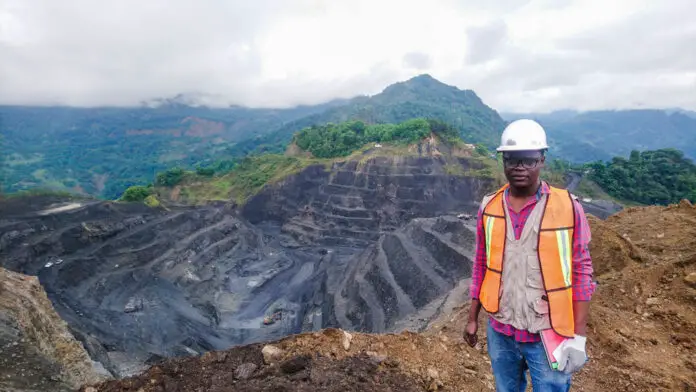On the other side of the world, in southeastern Africa, lies the Republic of Zimbabwe, a landlocked country that borders Botswana, Zambia, South Africa and Mozambique. Just as we have trouble locating those countries on the map, the inhabitants of that region of the planet find it difficult to know where Mexico is and distinguish it from that huge territory called Latin America.
That happened to Joseph Madondo, a young man from Zimbabwe who traveled halfway around the world to get to UNAM and become the first student from his country in this university.
“I didn’t know where Mexico was, I only located Latin America,” he says with a fluent and almost perfect Spanish that he studied for five years in Cuba, the first country in America he arrived to learn our language and study a degree in Geology, something that he could hardly have achieved in his native country.
“I studied in Zimbabwe until high school, then with a scholarship I was able to travel to Cuba to do the degree,” he recalls.
It was in Cuba where Joseph became interested in pursuing graduate studies in Mexico, and learned about the prestige of UNAM, which he met online and by some Mexican medical students who studied in the Caribbean country. “They told me about UNAM, I researched more and what I found I liked a lot: it was a large and prestigious university,” he reveals.
Joseph came to UNAM to pursue a master’s and doctoral degree in Earth Sciences at the Institute of Geophysics, where he had as a tutor the researcher Carles Canet Miquel, who taught him to be an independent student and look for his own lines of research exploring in the future. “He prepared me for the postdoctorate,” he acknowledges.
The academic confesses that he experienced a culture shock that was difficult to assimilate at first. “I started a process of adaptation, because the educational system is also very different. Here in Mexico they put much more emphasis on a student researching and getting involved, making an effort for himself; while in Zimbabwe education is from teacher to student, and one only listens to the teacher,” he compares.
“Thanks to the fact that I learned Spanish in Cuba, when I came here, I did not start from scratch, although there are different idioms between that country and Mexico,” he confesses.
At UNAM he found that the level in Earth Sciences is very high. “In Zimbabwe we think that everything more developed comes from Europe and the United States, so those who have the money to study go to those places or to Australia. But when I came to UNAM I found a high level of education, comparable to that of Europe and the United States. I am very proud to have studied at UNAM and impressed that this University is in Latin America.-“
He came to UNAM in 2015, and they still ask him why he didn’t go to the United States. “I think it is the same level of educational quality and, in addition, UNAM is practically free. I come from a humble family, so having an opportunity to study with quality and without representing a greater expense is very valuable. I had an economic scholarship from the National Council of Science and Technology that I might not have gotten in the United States,” he says.
Today, Joseph Madondo is settled in Mexico, where he has a Mexican wife and daughter. His plan is to remain linked to UNAM, now as a postdoctoral researcher at the Center for Geosciences, in Juriquilla, within the Querétaro campus of this university.
“My line of research follows that of the doctorate, which is about the genesis of mineral deposits. It deals with how they are formed, what processes are involved in their origin and where we can find them. I do exploration and prospecting work,” he explains.
Currently, Joseph Madondo is specializing in manganese deposits. “Mexico has in Hidalgo one of the largest manganese deposits in the world, which internationally attracts a lot of attention. It is located in the municipality of Molango de Escamilla and is the largest in the American continent,” he says.
The academic details that manganese is used with iron to make steel, and is also used in the manufacture of batteries, in addition to having manganese in smaller amounts in fertilizers and glass.
After finishing his postdoctorate, in two years, Joseph’s aspiration is to stay as a researcher at the Center for Geosciences, where he finds a good environment, with researchers from several countries with a good professional level. “If the opportunity arises, it would be an honor to stay.”
For now, he believes he is the only student from Zimbabwe because he has not met anyone from his country, even among Africans who study at UNAM. “I have colleagues from Nigeria, Ghana and Cameroon who are studying at UNAM, both undergraduate and graduate, but none from my country,” he reveals.
Recently, Joseph Madondo won third place in the BALUNAM Earth Sciences Award. “It is an award that I feel very happy about, I feel that all the effort of the master’s and doctorate has been worth it, because my research work of several years in manganese deposits is recognized,” he concludes.
Source: Gazeta UNAM







